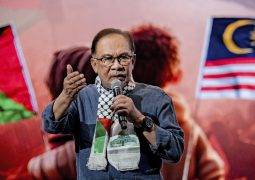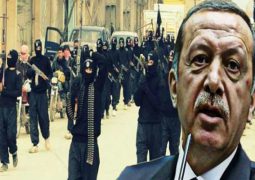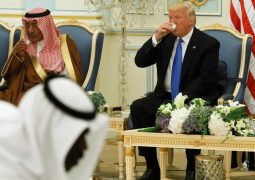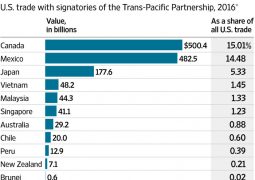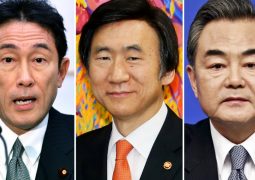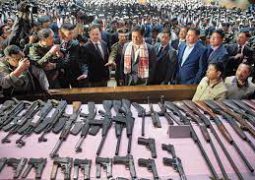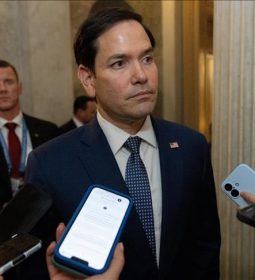Trump opens state visit to Japan with jab at trade imbalance
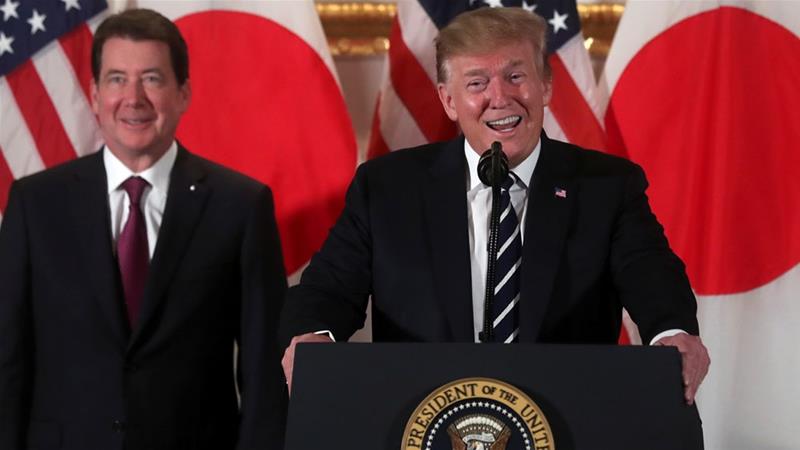
The US President’s four-day visit will include discussions about trade and North Korea with Prime Minister Shinzo Abe.
![Trump opens state visit to Japan with jab at trade imbalance Trump's first event after arriving in Tokyo was a reception with several dozen Japanese and American business leaders at the US ambassador's residence [Jonathan Ernst/Reuters]](https://www.aljazeera.com/mritems/imagecache/mbdxxlarge/mritems/Images/2019/5/25/64af98608c6b4f12a15d2348d3c1aa6e_18.jpg)
US President urged Japanese business leaders on Saturday to increase their investment in the US while he chided Japan for having a “substantial edge” on trade that negotiators were trying to even out in a bilateral deal.
Trump arrived in Japan on Saturday for a largely ceremonial state visit meant to showcase strong ties despite simmering trade tensions.
Japan’s trade minister said no trade agreement is expected during the Trump visit.
Shortly after arriving to a red-carpet welcome at the airport, Trump attended a reception at the residence of US Ambassador William Hagerty that the White House said included Japanese business executives from Toyota, Nissan, Honda, SoftBank and Rakuten.
Trump told the company officials “there’s never been a better time” to invest or do business in the US and repeated a complaint that the Federal Reserve’s policies had kept the country’s economic growth from reaching its full potential.
Trump said the US and Japan “are hard at work” negotiating and said he wanted a deal to address the trade imbalance between the two countries.
“Japan has had a substantial edge for many, many years, but that’s OK, maybe that’s why you like us so much,” he said.
“With this deal we hope to address the trade imbalance, removing barriers to United States exports and ensure fairness and reciprocity in our relationship,” Trump said.
Trade is one of Trump’s signature issues, and encouraging foreign investment in the US is a hallmark of his trips abroad.
Trump will meet Japanese Prime Minister – who planned the largely ceremonial four-day visit – on Sunday.
Tariffs on car industry
It is part of Abe’s charm strategy that some analysts say has so far spared Japan from the full weight of Trump’s trade wrath.
The two leaders planned to play golf on Sunday before Abe gives Trump the chance to present his “President’s Cup” trophy to the winner of a sumo wrestling championship match.
The president will become the first head of state to be received by new Japanese Emperor Naruhito since he throne earlier this month; he and Harvard-educated Empress Masako will host an elaborate dinner for the Trumps on Monday night.
Behind the smiles and personal friendship, however, there is deep uneasiness over Trump’s threat to impose tariffs on Japanese cars and car parts on national security grounds. Such a move would be more devastating to the Japanese economy than earlier tariffs on steel and aluminium.
The US president recently agreed to a six-month delay, enough time to carry Abe past July’s Japanese parliamentary elections.
Trump had predicted that a US-Japan trade deal could be finalised during his trip, but Japanese Trade Minister Toshimitsu Motegi said on Saturday a deal is not expected after meeting his counterpart, US Trade Representative Robert Lighthizer, in Tokyo.
“We deepened our understanding of each other’s positions on trade. However, we’re not in complete agreement,” Motegi told reporters following the talks. “There are still some gaps. We need to work to narrow our differences.”
North Korea’s nuclear programme
Also at issue is the lingering threat of DPRK, which has resumed missile testing and recently fired a series of short-range missiles that US officials, including Trump, have tried to play down despite an agreement by the North to hold off on further testing.
Trump’s national security adviser, John Bolton, told reporters on Saturday before Trump arrived that the short-range missile tests were a violation of UN Security Council resolutions and that sanctions must stay in place.
Bolton said Trump and Abe would “talk about making sure the integrity of the Security Council resolutions are maintained”.
He said: “The moratorium was focused, very focused, on intercontinental missile systems, the ones that threaten the United States.” That raised alarm bells in Japan, where short-range missiles pose a serious threat.
Bolton commented a day after North Korea’s official media said nuclear negotiations with Washington would not resume unless the US abandoned what the North described as demands for unilateral disarmament.
- Previous Amid the strongest relations in decades, Taiwan changing name of de-facto embassy in US
- Next US troop move to Middle East ‘extremely dangerous’: Zarif



